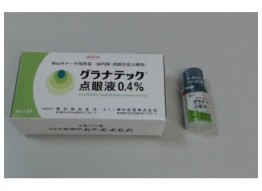Tacrolimus tablets 1 mg for transplantation (FK-506, Fujimycin, Graceptor, Advagraf)
What are Tacrolimus tablets 1 mg for transplantation (FK-506, Fujimycin, Graceptor, Advagraf)?
Tacrolimus hydrate, identified as a macrolide through the isolation of Streptomyces tsukubaensis bacteria from a Japanese soil sample in 1984, exhibits a diverse range of functions. Its mode of action involves binding with the immunophilin, a pivotal protein engaged in cellular immune responses, thereby exerting influence over T-lymphocyte signal transduction.
Tacrolimus tablets effectively mitigate the ramifications of organ transplant rejection across various organs such as kidneys, liver, heart, lungs, pancreas, small intestine, and bone marrow. These tablets also find utility in managing graft-versus-host reactions specifically in bone marrow transplants.
At a molecular level, these tablets disrupt the production of cytokines intricately linked with the orchestration of organ transplant rejection. By intervening here, they suppress the cascade of immune reactions inherent to the rejection process.
Empirical research into the application of tacrolimus underscores its positive impact, particularly in the context of liver transplantation. This compound substantially mitigates associated risks, encompassing aspects like mortality, graft loss, and the challenges posed by acute and steroid-resistant rejection. These outcomes highlight the subtle yet potent mechanism of action that tacrolimus employs.
Active principles: tacrolimus hydrate
Amount: 100 tablets
Maker: Towa Pharmaceutical Co., Ltd., Osaka, Japan
Indications: suppression of organ transplant rejection and graft-versus-host reaction
How to take
The exact dosage schedule should be prescribed by your doctor. The general regulations are the following:
- For renal transplantation: take 0.15 mg/kg of tacrolimus at a time, 2 times a day from 2 days before transplantation. In the early stage after operation, take 0.15 mg/kg 2 times a day. Subsequently, the dosage should be gradually decreased. The standard maintenance dose is 0.06 mg/kg 2 times a day, but your doctor may adjust the dosage according to your symptoms.
- For liver transplantation: initially take 0.15 mg/kg at a time 2 times a day. Subsequently, the dosage should be gradually decreased. The standard maintenance dose is 0.10 mg/kg daily, but your doctor may adjust the dosage according to your symptoms.
- For heart transplantation: initially take 0.03-0.15 mg/kg at a time 2 times a day. When tacrolimus is used after development of organ rejection, take 0.075-0.15 mg/kg 2 times a day. Subsequently, your doctor may adjust the dosage according to your symptoms. After stable condition is achieved, the dosage should be gradually decreased and maintained at the minimal effective dose.
- For lung transplantation: initially take 0.05-0.15 mg/kg at a time 2 times a day. Subsequently, your doctor may adjust the dosage according to your symptoms. After stable condition is achieved, the dosage should be gradually decreased and maintained at the minimal effective dose.
- For pancreas transplantation: initially take 0.15 mg/kg at a time 2 times a day. Subsequently, the dosage should be gradually decreased and maintained at the minimal effective dose.
- For small intestine transplantation: initially take 0.15 mg/kg at a time 2 times a day. Subsequently, the dosage should be gradually decreased and maintained at the minimal effective dose.
- For bone marrow transplantation: take 0.06 mg/kg at a time 2 times a day from 1 day before transplantation. In the early stage of transplantation, take 0.06 mg/kg 2 times a day, then it should be gradually decreased. When used after the development of graft-versus-host reaction, take 0.15 mg/kg 2 times a day. Your doctor may adjust the dosage according to your symptoms.
Please note that this preparation contains 1 mg of the active ingredient in one tablet.
Contraindications: do not use for pregnant, possibly pregnant or breastfeeding women. Do not use in patients with liver disorder, renal disorder, or infections.
Important information
Avoid drinking grapefruit juice or taking any food or supplement containing Hypericum perforatum (St. John's wort) while taking this medicine. Do not receive vaccination without an approval of your doctor while taking this medicine.
Since the possibility to become infected increases, the patient should wash hands, gargle and avoid crowded places in order to avoid getting infected.
If an allergic reaction occurs, patient needs to stop using the medicine and consult with their doctor. If patient is taking any other medication or treatment, they should consult with their doctor in advance.




